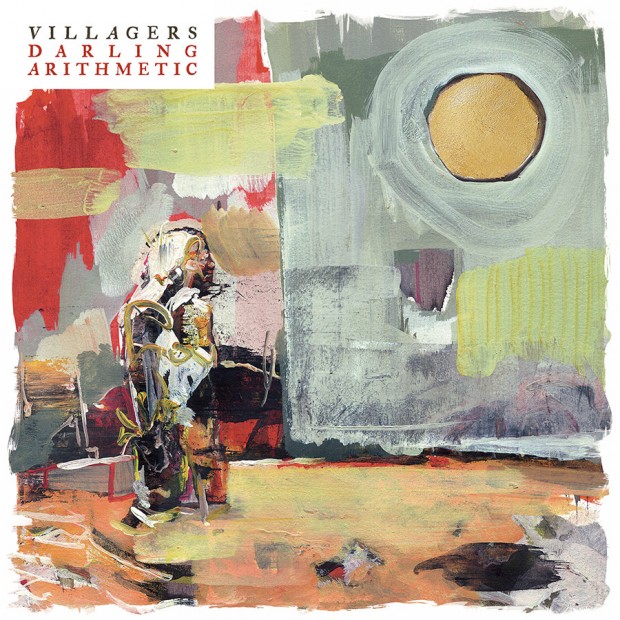Villagers has always been something of a vehicle for Conor O’Briens creative vision. Early on as a band it enabled him to explore the rich soundscapes we heard on Becoming A Jackal; the arrangements were complex, brooding and gave more than a tip of the cap to Nick Drake’s darkest days and recordings, but was most certainly foregrounded with O’Brien’s soloist vernacular. {Awayland} had a different, but no less focused modus operandi, with O’Brien and co. expanding a sound that ultimately felt like a more colourful, collaborative experience. Now on album number three, Villagers’ Darling Arithmetic goes beyond a back to basics approach and is Conor O’Brien at his most solitary best.
That’s not to say that Darling Arithmetic would benefit from the diversity a band can bring to the stage or the studio. This is arguably O’Briens most ambitious work to date because of its stripped-back sound. It’s a highly personal record, nuanced with confessional allusions to the life of a man who has had a difficult time coming to terms with himself and the pressures of his environment. Album opener ‘Courage’ for example is delivered in O’Brien’s uneasy vocal style, but lyrically it conveys him accepting himself, his journey and finally finding the strength to challenge external naysayers, “Do you really want to know about these lines on my face? Each and everyone is testament to all the mistakes I’ve had to make to find courage.” It’s sweetly melodic and bears resemblances to old country love songs that bury themselves in your soul; their relevance shining through when the heart is at its weakest.
‘Dawning On Me’ continues the raw personal reflection, and touches on O’Brien’s love and desire, but it’s a painful track at times – the melancholic and bittersweet chord progression dreamily weaves into O’Briens yearning voice. “You’ve been delivering the daydreams, you’ve been dawning on me. There’s a light coming through the window, but all I can see, is the light of your love, you’ve been dawning on me.” And so, the theme of the album begins to become abundantly clear. Love and loss, acceptance and self-doubt run through Darling Arithmetic like lost souls never quite meeting in the dark despite the guiding lights that they each hold aloft. It’s when they stop to reflect that the light is brightest.
That’s what makes Darling Arithmetic such a rewarding album. O’Brien may at times portray his pained past, but the moments of clarity are as compelling and insightful as his darkest emotions. ‘The Soul Serene’ deals with exactly this – a stepping back and taking stock of what really matters; comfort in one’s own skin. ‘No One To Blame’ shares similar, personal revelations but it’s the delving into the dynamics of the unrequited that shows O’Brien’s aptitude for exploring the heart-felt; a skill we should all strive for.
This has surely been an extremely difficult record to make, perhaps even more so because of the current political climate in Ireland and the Marriage Equality stance that is being well-fought by those of us who deem love as inclusive to all. Darling Arithmetic is the shining example of this; that love and acceptance can be a difficult journey, but one that should be approached whole-heartedly and with abandon. Aaron Drain





